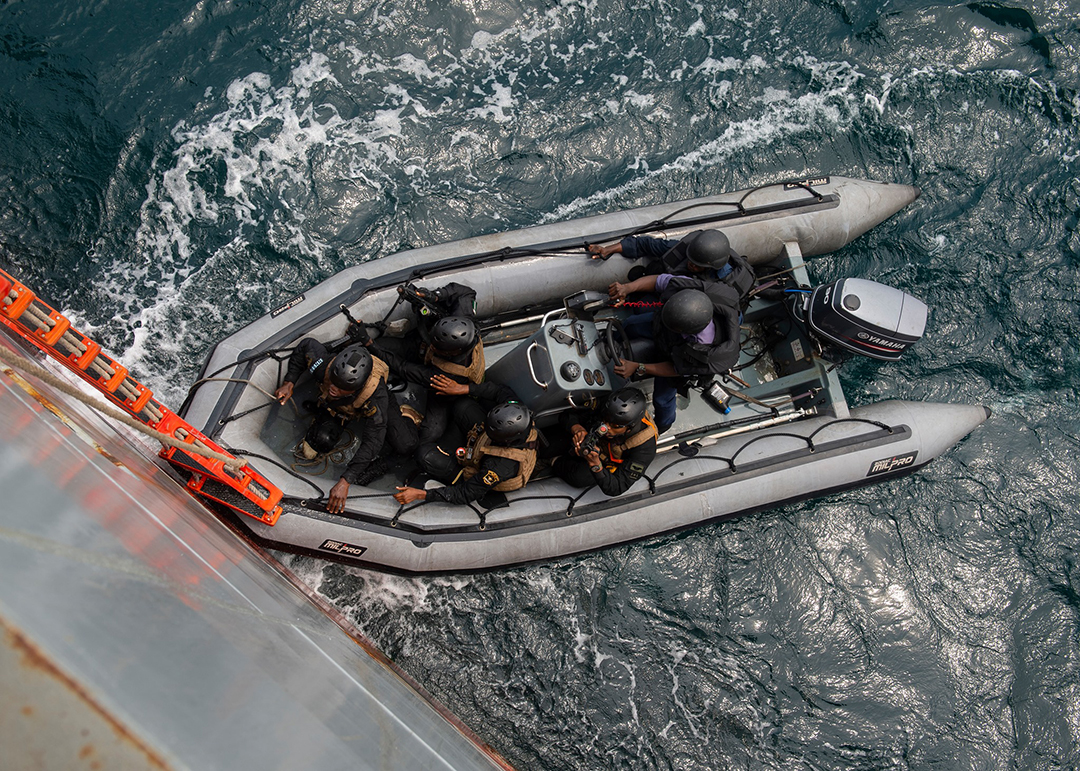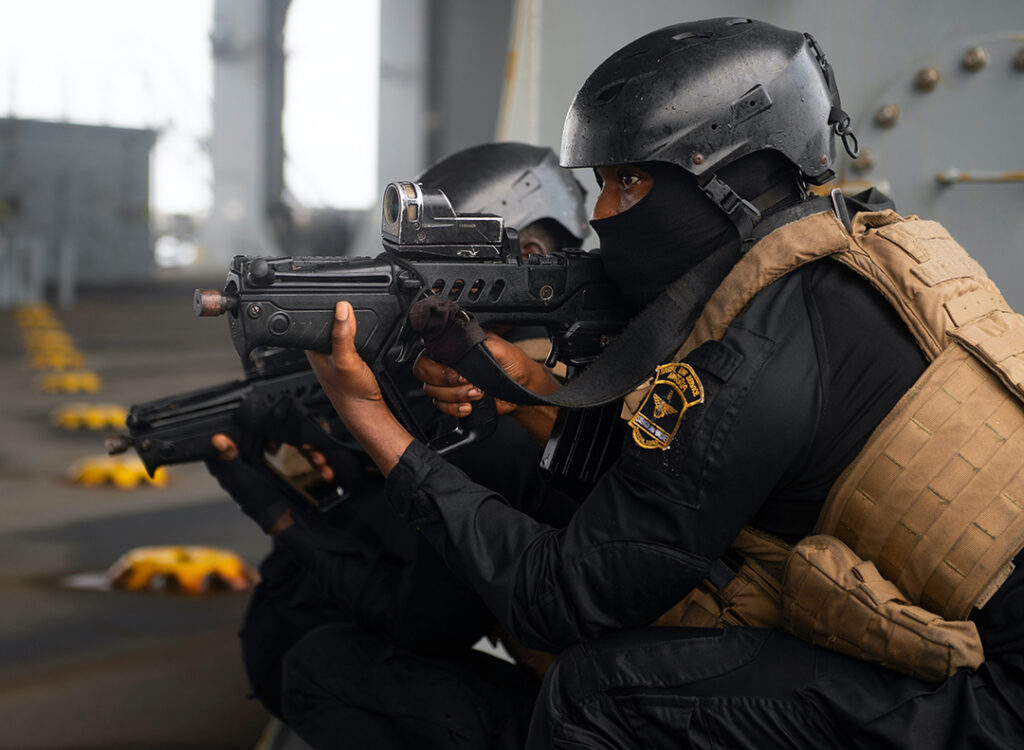ADF STAFF
Armed members of the Nigerian Navy were crouched on the deck of a warship, their eyes locked on a target. A helicopter whirred overhead, and drones were ready to fly.
Nearby, an attack boat sped toward a vessel in Nigeria’s Apapa port.
In Nigerian waters and around the Gulf of Guinea, piracy, illegal fishing and other sea crimes are rising, threatening lives, food security and international trade. To increase the country’s maritime security capabilities, members of Nigeria’s Navy recently participated in a four-week maritime security training exercise conducted by the U.S. Coast Guard.
The training, sponsored by U.S. Africa Command (AFRICOM), began August 30 and also was attended by members of the Spanish Navy.

“These maritime training operations required the collaboration of not one, but three countries’ navies, all working together simultaneously,” said U.S. Navy Capt. Chad Graham, commanding officer of the USS Hershel “Woody” Williams. “Collaborative operations like this offer invaluable experience for my crew in the present, but they also allow us to be more efficient and capable in future operations with our partners in the region.”
Bashir Jamoh, head of the Nigerian maritime administration and safety agency, told Reuters that increased sea patrols, including those conducted by U.S. and European navies, have helped curb some crime in the oil-rich region.
“If the threat to their ships is not addressed, the entire international trade is affected,” Jamoh said.
Illegal, unreported and unregulated (IUU) fishing and piracy have been major issues in Nigeria and around the region for decades.
In the first quarter of 2021, the Gulf of Guinea accounted for 43% of all piracy incidents in the African region, according to the International Maritime Bureau. In that time, 38 incidents were reported in the Gulf of Guinea, including 33 boarded vessels, two attempted attacks and a hijacked boat. The attacks have targeted cargo ships, fishing vessels and passenger boats.
In 2020, the Gulf of Guinea accounted for more than 95% of all maritime kidnappings globally, according to the bureau.

Illegal marine trade costs West Africa almost $1.95 billion across the fish value chain and $593 million per year in household income. IUU fishing also decimates rapidly diminishing fish populations, destroys ecosystems and has been linked to other crimes such as piracy, kidnapping and drug trafficking.
In June, the Nigerian House of Representatives reported that the country loses $70 million annually to illegal fishing, including lost revenue from taxes and licensing fees, and money that could have been collected by legitimate local fishermen.
Small-scale fishing operations contribute 80% of locally produced fish and support the livelihoods of 24 million Nigerians, The Maritime Executive reported.
Vice Adm. Auwal Zubairu Gambo, Nigerian chief of naval staff, spoke of the country’s maritime security issues in early September during an annual conference in Kano.
“Characteristically, the maritime threats have become of major concern and are evolving and challenging the combat capability of the Nigerian Navy and other stakeholders,” Gambo said in a story by Nigerian newspaper Daily Trust. “The present situation calls for constant reappraisals, greater collaboration as well as inter-agency cooperation within stakeholders.”
The U.S. military has long supported Nigeria’s maritime security efforts.
Earlier in August, officers assigned to USS Hershel “Woody” Williams participated in a three-day at-sea training exercise with Nigerian offshore patrol vessels. In July, 25 officers of the Nigerian Navy Special Boat Service and a team of U.S. Army Special Forces completed a five-week Joint Combined Exchange Training exercise, according to the U.S. Navy.
The countries jointly participate in several annual military exercises including Flintlock, which focuses on countering terror and transnational crime, and Obangame Express, which focuses on maritime security.

